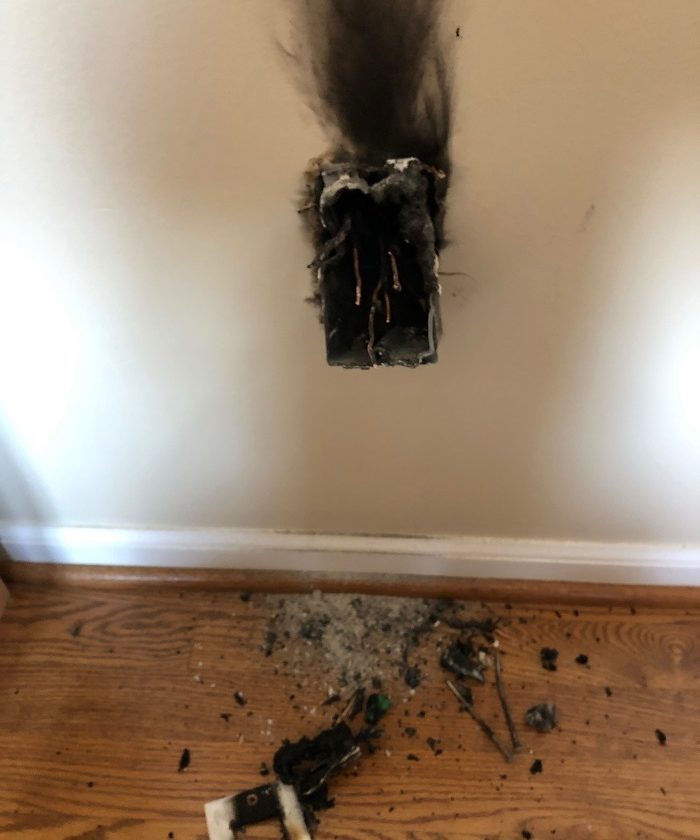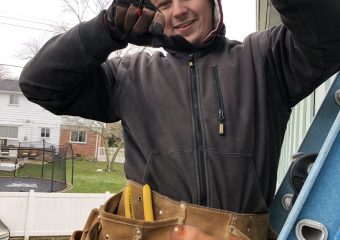Is Your Home A Fire Hazard?
Electrical hazards can increase your risk of fire by causing power surges and arc faults that can lead to serious consequences. Some of the hazards include things like:
- Damaged, worn, cracked or corroded electrical wires
- Overheated wires or cords caused by too many lights or appliances connected to one circuit
- Pinched or pierced wire insulation
- Frayed appliance or extension cords
- Electrical outlets or switches that are loose
- Damaged electrical appliances
- Overheated wires or cords
- Wires that have been chewed by rodents
In addition, homes that were built before 1973 are at additional risks. More than half of the homes in the United States were built before 1973 and if yours is one of them, it might be a good idea to have a licensed electrician inspect your home. Some of the problems in older homes include:
- Knob and tube wiring is a type of wiring was used in homes built between the 1800’s and 1830’s and is considered a fire hazard because it is not a grounded wiring system. If your home is wired with knob and tube wiring, we recommend that you have your home re-wired.
- Aluminum wiring was often used in homes built before 1972, and are 55 times more likely to create a fire hazard than newer homes wired with copper. There are few warning signs that these types of wires are overheating before an actual problem happens. An experience electrician can replace or repair aluminum wiring and reduce your risk of overheating and a possible fire.
According to Angie’s List, here are a couple symptoms that could be telling you have an electrical problem:
- Circuit breakers can trip when they become old. Occasional tripping can indicate a simple overload but if you find your circuit breaker trips frequently, you should consult an electrician.
- Mild electrical shocks that you experience when touching an appliance should never be ignored. This could indicate improper electrical wiring and should be inspected.
It’s always safer to avoid do-it-yourself electrical work and call a professional electrician to perform the work for you.
To ensure your home is meeting the current electrical code in your area, call A J Leo Electric & Solar so we can help you identify dangerous electrical problems that may be hidden in your home.

